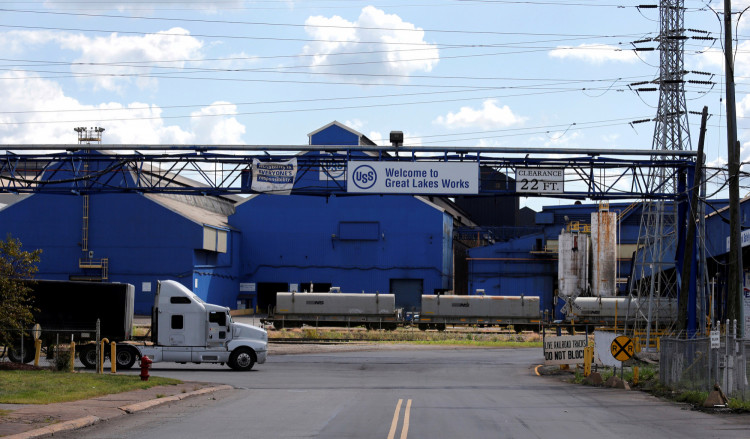The Biden administration is under legal fire as Nippon Steel and U.S. Steel launched a two-pronged legal battle over the president's decision to block their proposed $15 billion acquisition deal. The lawsuits, filed in the U.S. Court of Appeals for the D.C. Circuit, aim to overturn the Biden administration's decision, which cited national security concerns. Additionally, the companies filed a separate lawsuit against Cleveland-Cliffs, a rival steel producer, and its CEO Lourenco Goncalves, as well as United Steelworkers (USW) President David McCall, accusing them of collusion to derail the merger.
The first lawsuit alleges the Committee on Foreign Investment in the United States (CFIUS) failed to conduct a fair review, accusing the administration of prioritizing political motives over national security considerations. "From the outset of the process, both Nippon Steel and U.S. Steel have engaged in good faith with all parties to underscore how the transaction will enhance, not threaten, United States national security," the companies said in a joint statement.
President Biden blocked the acquisition last week, with White House spokesperson Robyn Patterson defending the move, stating, "A committee of national security and trade experts determined this acquisition would create risk for American national security. President Biden will never hesitate to protect the security of this nation."
The stakes are high. U.S. Steel CEO David Burritt has warned of dire consequences if the deal collapses, including the potential closure of mills in Pennsylvania's Monongahela Valley and Gary, Indiana. These facilities were slated for significant upgrades as part of Nippon Steel's investment plan, which included a $2.7 billion commitment to modernize operations and enhance competitiveness. "The government failed us," Burritt said. "They failed our workers, our communities, and our country."
The second lawsuit, invoking the Racketeer Influenced and Corrupt Organizations Act (RICO), alleges that Cleveland-Cliffs and the United Steelworkers engaged in an illegal campaign to monopolize domestic steel markets. According to the complaint, Cleveland-Cliffs offered "valuable benefits" to the union to oppose the deal, although specific details of these benefits remain undisclosed.
Cleveland-Cliffs previously attempted to acquire U.S. Steel in a $7 billion offer in 2023, which was rejected. The companies' relationship has since soured further, with Nippon and U.S. Steel alleging that Cleveland-Cliffs and the union influenced the Biden administration's decision to block their merger.
USW President David McCall dismissed the allegations, calling them "baseless" and reiterating the union's commitment to safeguarding the domestic steel industry. "By blocking Nippon Steel's attempt to acquire U.S. Steel, the Biden administration protected vital U.S. interests," McCall said in a statement.
This legal fight also carries significant geopolitical implications. Nippon Steel's acquisition was framed as a move to strengthen U.S. steel production and counter China's growing influence in the global steel market. The companies pledged to preserve U.S. Steel's name, headquarters, and workforce through 2026, emphasizing that their partnership would bolster America's supply chains.
However, Biden's stance on the deal has drawn scrutiny for its departure from traditional CFIUS review processes. Nippon Steel and U.S. Steel argue that the decision undermines trust in the system. The companies are seeking expedited review to potentially shift the decision to the incoming Trump administration, which has also expressed opposition to the deal.




